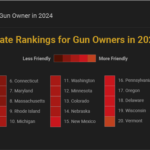
The Supreme Court did not appear swayed to rule in favor of a man convicted of immigration law violations for offering so-called “adult adoptions” he claimed would lead to citizenship, prompting overt skepticism by Justice Neil Gorsuch.
The case surrounds Helaman Hansen, who from 2012 to 2016 organized a program charging as much as $10,000 to 471 people for participation in what he promised would lead to their eventual citizenship. Attorneys for the petitioner brought their case to the high court after arguing the law he was convicted of violating was overly broad and stifled his First Amendment rights.
SCOPE OF IRS POWERS TOPS SUPREME COURT’S BUSY DOCKET OF ARGUMENTS AND OPINIONS

But Gorsuch, an appointee of former President Donald Trump and one of the six conservative justices on the court, appeared strikingly unconvinced that Hansen’s argument was in good faith, arguing, “He is taking advantage of vulnerable people.”
“He had every intent in the world to keep these people here to take their money with no prospect they’d ever” attain citizenship, Gorsuch added.
The law Hansen is challenging asserts that anyone who “encourages or induces” a non-citizen to come to the United States illegally can be punished by up to five years in prison. There is an added penalty of up to 10 years in prison if the person performing the act is doing it for financial gain.
The U.S. government said Hansen convinced at least 471 people to pay him between $550 and $10,000, which amounted to more than $1.8 million.
Hansen’s attorneys want the justices to find the law is “facially unconstitutional on First Amendment overbreadth grounds,” arguing it prohibits a substantial amount of free speech, according to the petition.
Hansen was sentenced to 10 years in prison on encouragement charges and an additional 20 years for fraud charges. However, the U.S. Court of Appeals for the 9th Circuit ruled that the law was overly broad and violated his free speech rights and overturned the encouragement charges.
The court’s three liberal justices appeared more swayed by the free speech implications of the law, with Justice Elena Kagan questioning “what happens to all the cases” where a doctor, peer, friend, or lawyer “says to a non-citizen: ‘I really think you should stay.’”
Justice Ketanji Brown Jackson raised concerns about nonprofit organizations advocating the feeding and housing of undocumented immigrants, wondering whether the encouragement text of the law could be used against those advocates.
Justice Brett Kavanaugh, another appointee of Trump, asked questions in a similar frame as the liberals, citing a brief from a coalition of religious organizations that supported Hansen. He, too, appeared concerned over the possibility that the government could hold people responsible for providing food, water, shelter, or other accommodations to immigrants that may be perceived as encouraging them to stay.
“They seem to have a sincere concern about that and that it will deter their everyday activities. That’s what a lot of charities do,” Kavanaugh said.
Principal Deputy Solicitor General Brian Fletcher, arguing on behalf of the Biden administration, sought to explain that the law wouldn’t be used to go after people providing charitable care for immigrants, citing the government’s history and use of the law.
Two other conservatives, Chief Justice John Roberts and Justice Amy Coney Barrett, both contended that the law has existed since the 1950s and has not faced any First Amendment challenges.
Meanwhile, Justice Clarence Thomas wondered whether free speech was the “only component of the First Amendment subject to overbreadth.”
“Has it ever applied it in any other aspect of the First Amendment?” Thomas asked.
CLICK HERE TO READ MORE FROM THE WASHINGTON EXAMINER
Esha Bhandari, an American Civil Liberties Union lawyer who argued on behalf of Hansen, answered she’s “not aware” of any other aspect of the First Amendment the court has applied to the overbreadth doctrine.
A ruling in the case, United States v. Hansen, is expected by the end of June.





